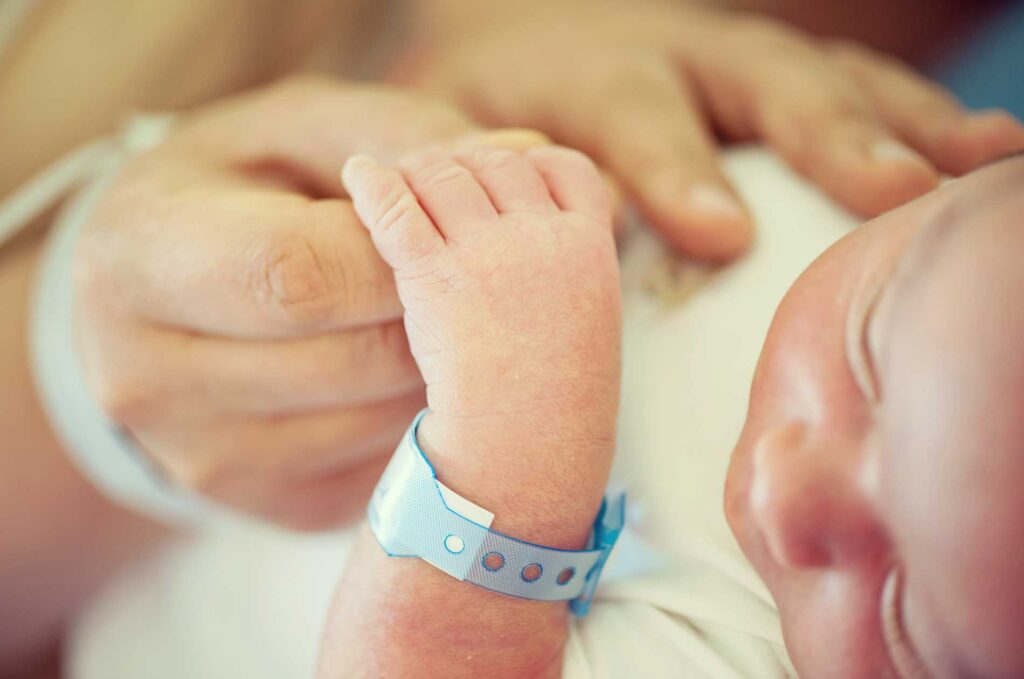Your child is one of the most precious things in life. Every parent wishes for the health and safety of their newborn. Nine months of careful preparation, meticulous care, utmost caution, and unwavering devotion are rewarded by the birth of your child, a moment all parents eagerly anticipate.
But what if complications arise during childbirth? What happens when medical authorities act irresponsibly and put the mother and child at risk? What if birth injuries occur not because of your fault, but because of someone else’s negligence such as wrongly used medical devices, incorrect diagnosis of pregnancy disorders, or incorrect prescribing of prenatal medications?
If this is the case, you must take legal action and ensure that your rights are protected. You are fully entitled to pursue legal action against the healthcare organization for the loss you suffered due to its negligence. The victim must receive justice, as the case of negligence is unacceptable from a medical and social perspective.
Before diving into the legal implications, let’s first find out what a birth injury is.
What is a Birth Injury?

The term “birth injury” refers to any type of harm done to an infant during birth or shortly after birth. The delivery process often results in minor injuries to babies. But the majority of these injuries are self-healing and don’t require any treatment. Early diagnosis and quick treatment may help manage birth injuries, so seek medical attention immediately if there is a suspicion of an injury.
However, there are some severe birth injuries that may be permanent in nature, and your child could be disabled for the remainder of their life. To learn more about the type of birth injuries and how to deal with them, visit www.childbirthinjuries.com to protect your child’s future.
How to Fight Your Birth Injury Case?
Taking legal action can help you pay for your child’s medical treatment if they have suffered a birth injury due to medical malpractice. Here’s what you need to know to fight your case.
1. Seek Compensation From The Court To Help With Resources
Birth injuries caused by medical interventions can have a grave impact. In the event that a healthcare provider’s negligence causes facial paralysis, cerebral palsy, Erb’s palsy, perinatal asphyxia, hypoxia, bone fracture, or spinal cord injury to a child, the child will be left with lifelong effects.
As parents, it’s your responsibility to ease the burdens and challenges that your children will face. They will need support from medical providers and social service agencies at each stage of their development. That will not be an easy task. The victims will have to undergo several necessary lengthy and costly treatment and rehabilitation procedures. It will be difficult for them to pursue appropriate medical treatment without significant resources. Taking legal action will enable you to recover the above-mentioned damages. While getting compensation won’t cure your child’s disease overnight, intensive treatment could gradually reduce symptoms and allow your child to lead a happier and healthier life.
2. Keep Medical Records Safe

There are parents who have lost their children due to medical negligence that led to birth injury defects. Even so, they don’t sue those who are responsible. Most of them perceive litigation as a cumbersome and time-consuming undertaking that will produce no results. However, this couldn’t be further from the truth. Successful litigation relies on the presentation of strong and relevant evidence, which relies heavily on medical records.
As a parent, it is your responsibility to make sure that any medical records that establish negligence in relation to birth injury are kept safe. As a result, the case will become a great deal simpler. Birth injuries are sometimes visible and identifiable during birth. These cases mean the newborn has suffered obvious physical abuse.
However, in many cases, birth injuries manifest later in life. In such cases, clinical records play a crucial role in detecting and determining birth injuries. It is crucial to evaluate the child’s history of illnesses and test results to rule out any ailments that could affect his development and health. For instance, explaining why the child fails to reach growth milestones, or fails to demonstrate cognitive competence at a particular age. An analysis of your child’s health history and test results will be helpful in determining whether their condition is the result of medical negligence during birth.
Additionally, keeping the records will make it easier to provide your child with the right treatment, eliminating the hassle of needing to rely on the doctor for their medical history. You can also use it for academic purposes, such as selecting the right educational institution, determining their self-care needs and ability to perform, etc.
3. Be Aware Of The Statute Of Limitations
Statutes of limitations vary from state to state. Various states have varying laws on determining the age of the majority between one year and 21 years of age. As a result, it is crucial to start your lawsuit before the statute of limitations expires, as you will not be able to file a medical malpractice lawsuit afterward.
The statute of limitations in some states begins to run from the date of injury, while in others, it begins at the time the injury is discovered.
4. Contact An Experienced Attorney For Legal Assistance

It is imperative that you receive the compensation you deserve, and the litigation process must be handled in the correct manner. Make sure you hire an attorney who has a proven track record of success in dealing with cases involving medical malpractice. In most cases, initial consultation with an attorney is free of charge.
To comfortably walk through the experience in detail, you must hire a lawyer who has the deepest understanding of the situation you are facing. The goal of your lawyer is to show the court that the defendant breached medical standards of care by performing or neglecting medical procedures that resulted in injury or defect to your child.
Final Word
There is no doubt that there are many rare, yet horrifying cases of medical negligence-induced birth injuries and birth defects. It is nearly impossible to quantify or compensate for the extent of the distress and psychological trauma that the children’s parents and the children themselves have undergone. However, financial compensation and justice can serve as the necessary bandages on the wounds of these children and their parents.







